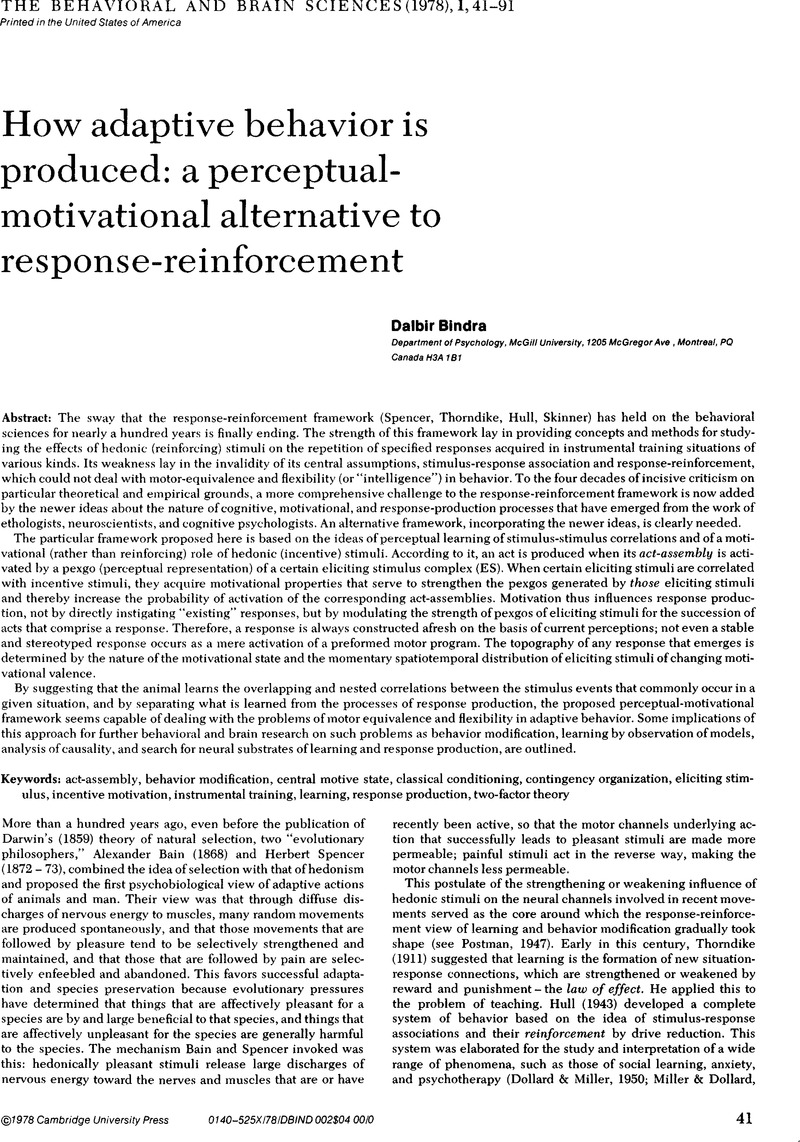No CrossRef data available.
Article contents
Behavioral flexibility in learning situations: adaptive or adaptable behavior?
Published online by Cambridge University Press: 04 February 2010
Abstract
An abstract is not available for this content so a preview has been provided. Please use the Get access link above for information on how to access this content.

- Type
- Open Peer Commentary
- Information
- Copyright
- Copyright © Cambridge University Press 1978
References
REFERENCES
Barker, L. M., Best, M. R. and Domjam, M. (Eds.) Learning mechanisms in food selection. Baylor: Baylor University Press, 1977.Google Scholar
Krieckhaus, E. E.Innate recognition aids rats in sodium regulation. Journal of Comparative and Physiological Psychology, 1970, 73: 117–122.CrossRefGoogle ScholarPubMed
Krieckhaus, E. E. and Wolf, G.Acquisition of sodium by rats: Interaction of innate mechanisms and latent learning. Journal of Comparative and Physiological Psychology, 1968, 65: 197–201.CrossRefGoogle ScholarPubMed
Marler, D.Birdsong and speech development: Could there be parallels? American Scientist, 1970, 58: 669–673.Google Scholar
Rozin, P. The significance of learning mechanisms in food selection: Some biology, psychology and sociology of science. In Barker, L. M., Best, M. R. and Domjam, M. (Eds.), Learning mechanisms in food selection. Baylor: Baylor University Press, 1977.Google Scholar
Wong, R. and Wong, B.Infantile handling and learning: A critical review. The American Journal of Psychology, 1978 (in press)Google Scholar


